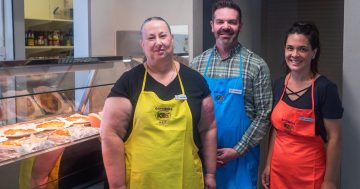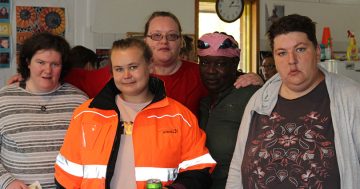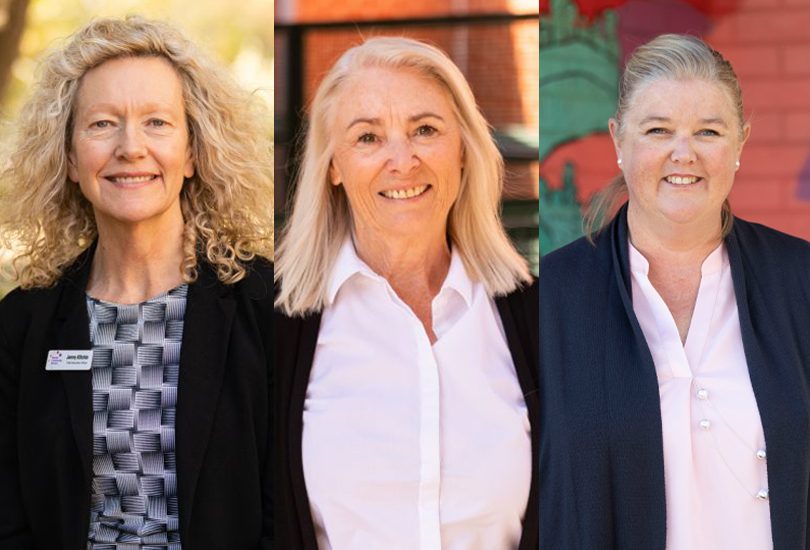
Jenny Kitchin, CEO of Woden Community Service; Lee Maiden, CEO of Communities@Work; and Mandy Green, CEO of Belconnen Community Service have all expressed the need for government support during these challenging times. Photo: Region Media.
Community organisations in Canberra have expressed an urgent need for government support so they can continue operating during the current COVID-19 lockdown.
Communities@Work CEO Lee Maiden called on the government to supply a rescue package for the community sector of the same magnitude as that made available for small businesses so the organisations can continue to provide vital support to the community’s most vulnerable citizens.
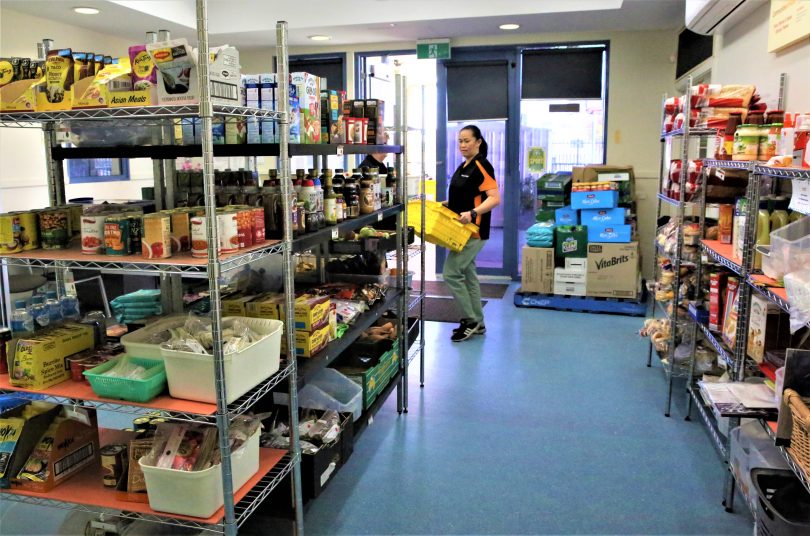
Communities@Work food pantries feed over 100 households a day. Photo: Supplied.
“I think it’s time the government acknowledged the input we have into the community,” she said.
“Things like our community pantry, where we rely on a lot of donations of food from people to put into that pantry, are at risk because, of course, we’re not getting those donations because people need that food themselves as they aren’t working.
“So what happens when our pantry no longer has food, how do we continue to support all of the families that have been coming and seeing us? I think the government needs to recognise that we’ve been doing this a long time, and making a big difference in the community,” she said.
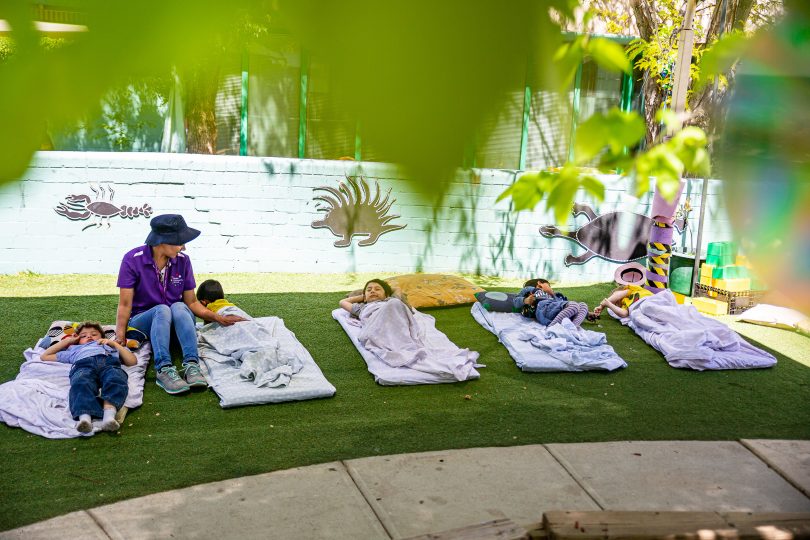
Childcare is a large part of these organisations. Photo: Region Media.
Woden Community Service Jenny Kitchin says the impact of the lockdown on their organisation has been enormous, and agreed that a stimulus package for all community services providers was essential.
“A lot of us need straight financial stimulus packages, which have been slow to come to the community sector, and we really need to get some support and an indication from government about how they’re going to help us in that space,” she said.
Caring for community in a COVID-19 crisis
If you're in the business of helping people, how do you cope with a health crisis that requires us all to stay away from each other? We're talking to the heads of three Canberra community services who are thinking adaptively and flexibly about how to continue caring for their clients.
Posted by The RiotACT on Wednesday, March 25, 2020
Belconnen Community Service CEO Mandy Green agreed, and expressed concern for the safety of the community, and her staff, but paid tribute to the creativity and innovation of her team in delivering community services in the current circumstances.
“We’ve got some extremely talented employees,” she said. “They are putting their creativity and innovation to the test and we’re seeing some amazing ways of engaging with people to reduce social isolation while we’re physically distancing ourselves. So watch this space, we might have a whole new way of service delivery by the end of this,” she said.
Belconnen Community Service has started a ‘Kindness’ campaign, encouraging members of the community to interact while observing social distancing, and calling for donations of food or essential supplies for vulnerable community members, and asking volunteers to use phone and video calls to ensure social distancing doesn’t increase social isolation.
Both Communities@Work and Woden Community Service have also changed their outreach services to ensure their volunteers and community development staff observe social distancing and are using phone and video calls to reach out to seniors and other vulnerable people. But Kitchin says it is difficult to interpret social distancing rules in the areas of aged care and personal care.

Social distancing rules present difficulties with aged care services. Photo: Belconnen Community Service.
“When we hear we need to observe social distancing of 1.5 metres, what does that mean in an aged care or personal care setting? It’s very difficult to get some of those directions from government,” Jenny Kitchin said.
If you would like to help Communities@Work, Belconnen Community Service or Woden Community Service, get in touch via their websites. You can assist by volunteering or making a donation.
Follow Communities@Work on Facebook.
Follow Belconnen Community Service on Facebook.
Follow Woden Community Service on Facebook.



















